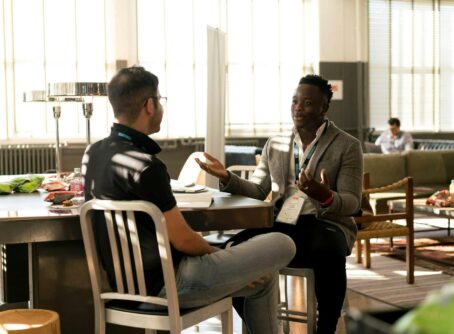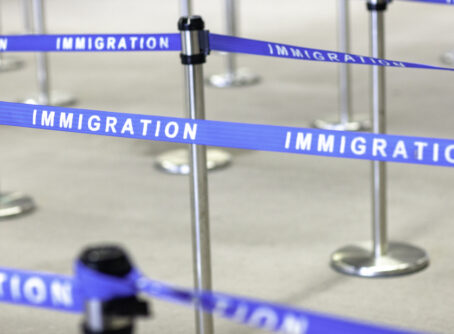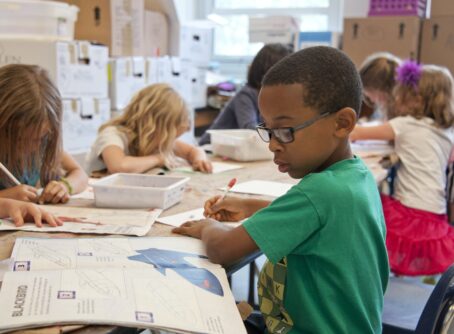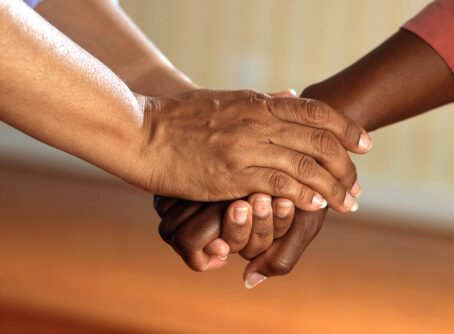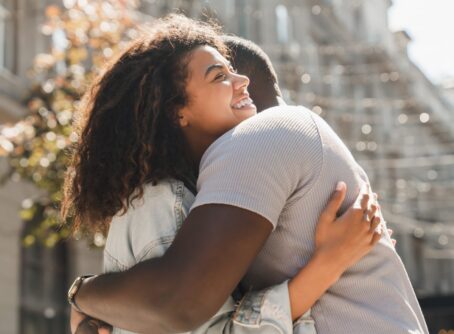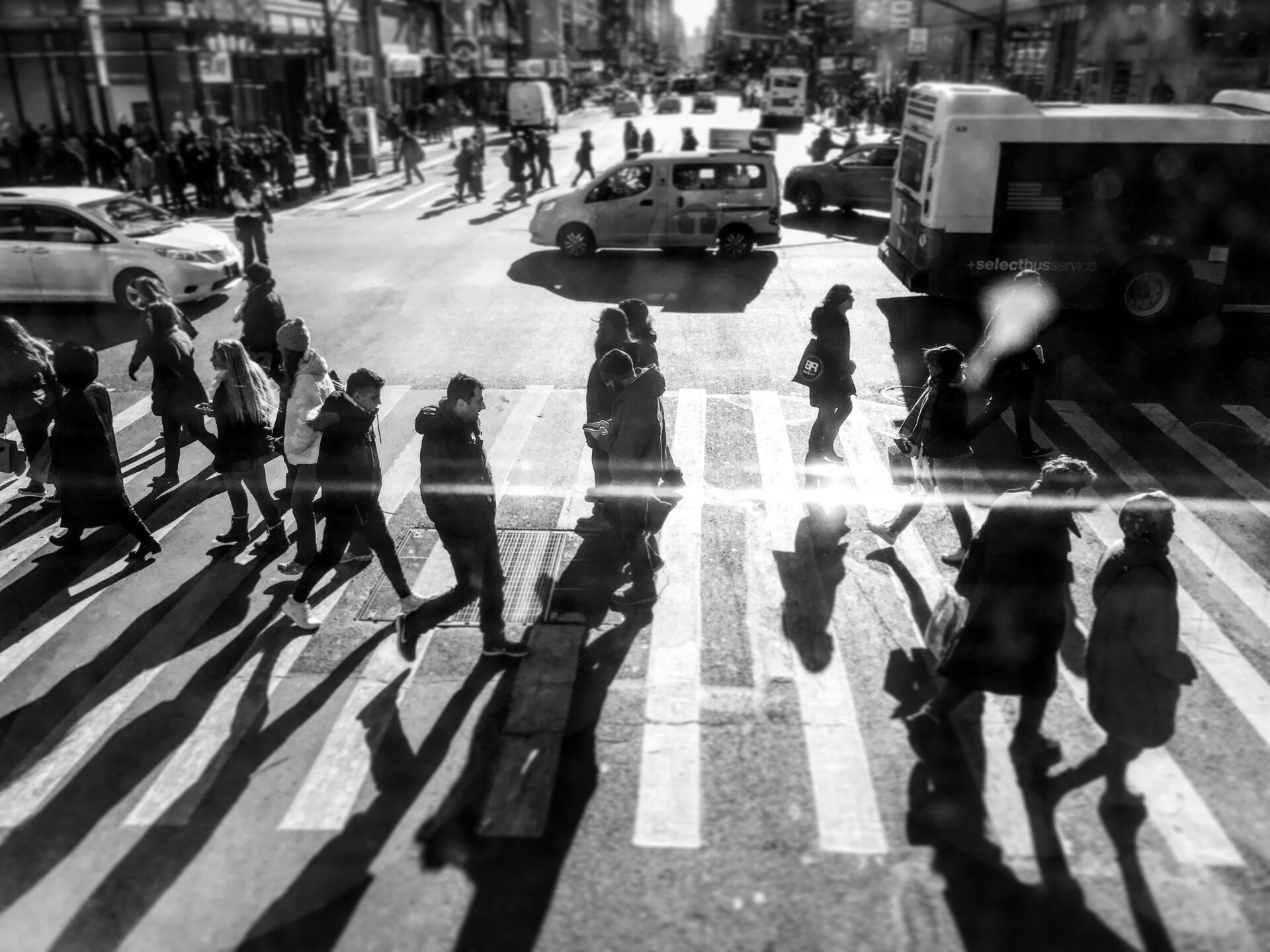
This interview is part of our series on human trafficking: understanding the complex problem of human trafficking as well as the roles that institutions and society have in stopping it.
Human trafficking is a global issue that impacts nearly every industry and region in the world. It’s also a growing issue. As more human trafficking cases are discovered, the pace of prosecuting human trafficking is not keeping up with the pace of human trafficking cases that are stacking up. The Human Trafficking Institute’s 2021 Federal Human Trafficking Report found an overall decrease in the number of new trafficking cases filed in the U.S. Federal Court System since 2017, but because the prosecution process of such cases is complex and time consuming, new cases are filed while many existing cases remain unresolved. For example, in 2021, federal prosecutors in the U.S. handled 607 active cases in addition to the 140 new cases filed— that’s more than the 594 active cases in 2020.
That doesn’t even reflect the number of people trapped in human trafficking whose cases have not been identified. University of California, Berkeley’s Human Rights Center estimates that the United States contains at least 10,000 forced laborers at any given time. Globally, the problem is also huge. The International Labour Organization (ILO) estimated in 2021 that 27.6 million people are experiencing forced labor. Although 125 of the 155 United Nations member states have adopted the UN Protocol Against Trafficking in Persons, that only represents a portion of the international community, and “many countries… lack the necessary instruments or political will” to implement real prosecution and prevention of human trafficking, even though they have adopted the UN’s protocol on paper.
There is a clear disparity between the number of trafficked people in the United States and those with active cases and rescue support; there is a clear disparity between the global sentiment of stopping human trafficking and the ability to actually do so. There are millions of people who may have little to no hope of liberation from this abuse and exploitation, and the problem is only growing.
Human trafficking is a serious justice issue. According to HTI’s report, “Human trafficking is the crime of using force, fraud, or coercion to compel an individual to work or to engage in a commercial sex act.” Human trafficking is both an international and domestic justice issue, but clean borders cannot be drawn between the U.S. and the rest of the world when it comes to the exploitation of individuals. Individuals entrapped by traffickers are treated as less than human — frequently enduring “prolonged physical and emotional abuse” at the hands of their traffickers. Not only are the situations of trafficking inherently dangerous and abusive, but survivors of trafficking face huge barriers to healing and rebuilding their lives. They often carry with them emotional trauma, the scars of physical abuse, and economic destitution. Many survivors of trafficking are also vulnerable to being re-trafficked. “Trafficking betrays, belittles, and dehumanizes,” inflicting trauma that isolates survivors from social safety nets and means of rehabilitation. Globally, women and children are disproportionately impacted by human trafficking due to additional vulnerabilities such as poverty, gender discrimination, and lack of access to education. With an estimated 25 million trafficked persons globally and clear human rights violations, this problem requires a robust public justice response.
Human trafficking is not only illegal (at least on the books for most countries) and a crime against humanity, but it most importantly is an affront to God and desecrates the image of God in human beings. The abuse that survivors endure isolates them from families and breaks down relationships. The trauma they carry impairs their engagement with communities. So many trafficking survivors are minors, too: they face a lifetime of trying to heal from unimaginable experiences of exploitation. Human trafficking impacts both the whole person and their whole life — all of the groups and relationships that they are involved in.
The Role of Government
Accordingly, a just response to human trafficking means a holistic response. This can only be accomplished when both government and civil society address human trafficking in a collaborative effort. It is the government’s responsibility to legislate, enact, and enforce laws that prohibit and prevent human trafficking; hold those accountable who choose to break those laws; and provide assistance to the survivors of human trafficking. As the CPJ Guidelines describe, governments are responsible to “legislate, enforce, and adjudicate public laws for the safety, welfare, and public order of everyone within its jurisdiction.”
The U.S. government has exercised their responsibility to this standard by creating legislation and policies such as the Trafficking Victims Protection Act (TVPA). TVPA follows a three-pronged approach (prevention, prosecution, protection) in its national framework for federal responses to human trafficking. Enacting and enforcing legislation such as TVPA is one of the strongest ways that government can participate in ending human trafficking because they hold the unique power of punishing lawbreakers such as human traffickers in proportion to the severity of the crime they committed. In this way, the U.S. government practices retributive justice that actively holds traffickers accountable for their exploitation and abuse of others. Since the government upholds this system of consequences for criminal action, it prevents trafficking perpetrators from harming more vulnerable individuals and deters potential traffickers.
It’s important that the government participate in the work of restorative justice when it comes to the effects of human trafficking — in this case, supporting the healing and recovery process for survivors. One of the key ways the government can act in restorative justice capacities is through retribution, “a legal method for victims to receive the compensation for profits that traffickers withheld from them, additional losses they suffered, and future costs they may incur as a result.” TVPA actually includes a provision that makes retribution mandatory in criminal trafficking cases. These funds help survivors access medical and rehabilitation services, childcare, housing, and transportation, as well as make up for lost income. However, the most recent TVPA funding expired in September 2021. Four Trafficking Victims Protection Reauthorization Act bills have been introduced in Congress this year to reauthorize TVPA and introduce new protections, but they have not passed yet. The government should prioritize reauthorizing these important funding and protection provisions stipulated in TVPA for combating human trafficking; that would be a significant step to equip and support anti-trafficking work as well as protect and empower survivors.
Survivors of sex trafficking experience difficulty in reintegrating into society and speaking out against their abuse in fear of being arrested themselves for the crimes they were illegally coerced into performing. There has been growing support of efforts to protect sex trafficking survivors from prosecution for prostitution, as many individuals have been unjustly arrested while their abusers remain free. For example, in 2019, almost 300 minors were arrested for prostitution related offenses, many of which were survivors of trafficking and abuse. Even if police departments are aware that they were illegally coerced into prostitution, survivors are often still arrested. The government has the authority to and should place protections on survivors of human trafficking because they performed illegal acts against their will.
Although organizations such as the Human Trafficking Legal Center provide legal services to survivors, the government can support survivors through protecting them from prosecution. For example, only 17 of . states in the U.S. provide immunity from prosecution and diversion to rehabilitation services for youth survivors of trafficking who are arrested: that’s less than half of the U.S. Youth are particularly susceptible to human trafficking; 57% of victims in 2021 trafficking cases in the U.S. were minors. More states should adopt immunity and diverserion provisions to protect youth, a vulnerable population particularly exploited by trafficking.
The Role of Civil Society
Civil society, not just government, also holds responsibility in executing justice for those caught in the web of human trafficking. Civil organizations have unique capabilities to participate in the restoration and support of trafficking survivors because they can offer relational care in a way that the government cannot. As explained earlier, survivors often deal with trauma, economic instability, and disconnection from communities even after they have been removed from dangerous situations. Churches, non-profits, advocacy groups, and many other organizations are well-equipped to meet these particular needs.
These civil society organizations can walk with survivors in their paths to healing — to build relationships with them and bring a community of support around them. Shared Justice’s series on human trafficking will explore civil society organizations working to protect survivors and prevent human trafficking before it happens, examining how these organizations can collaborate with the government to reduce and eventually eliminate both domestic and international human trafficking. For example, Present Age Ministries in Charlotte, NC, offers individualized support to survivors of trafficking as well as their families and communities to provide them “consistency, stability, and security.” Present Age works with local government authorities to ensure the girls they come into contact with receive all of the necessary resources and care. International Justice Mission (IJM), which focuses on global human trafficking, includes restoration and rehabilitation of survivors as part of their strategic plan in ending human trafficking. The Human Trafficking Institute (HTI) provides survivors with legal services and protection as they rebuild and heal, as well as helping local governments build legal and logistic structures for identifying and prosecuting traffickers.
Such organizations can also identify and support vulnerable people who might otherwise become victims of human trafficking. One nonprofit organization, Love Justice International, works to prevent trafficking by intercepting people in transit as well as prosecuting human traffickers. Present Age Ministries and IJM also include trafficking prevention and education as part of their efforts to protect the vulnerable from exploitation. HTI focuses on educating and training community officials on important practices to stop trafficking. For each of these organizations, collaboration with government anti-trafficking efforts is part of their strategy.
In this way, civil organizations’ work to prevent trafficking and support survivors, combined with government action, creates a robust response network to the complex problem of human trafficking. These organizations conduct work that the government is not equipped to do and provide holistic support for trafficked persons. The large scale of human trafficking around the globe creates a complex problem that does not have a “one size fits all” solution. Collaboration between the government and civil society is essential in combatting the prevalence of human trafficking, arresting traffickers, and caring for victims. Continue following along with this series to hear more about the work of these different organizations, and how they collaborate with governments to both stop human trafficking and care for survivors.
While there are already many organizations and government bodies working to combat and end human trafficking across the globe, there is always more to be done. The federal government should pass legislation to strengthen anti-trafficking work financially and legally, such as passing the TVPA Reauthorization Act. Civil society organizations can partner with government agencies to provide aftercare and legal services for people who were subjected to trafficking. Individuals also have a stake in this problem and can make a difference by volunteering at a local organization, fostering children, or participating in advocacy events such as Dressember. The scale of human trafficking both around the globe and within the United States creates many obstacles for effectively combating the increasing rate of trafficking, but there is hope. With the efforts of the government, civil society and caring individuals, human trafficking can end.
Caroline Tichenor is a junior economics major at Baylor University. She is interning at the Center for Public Justice as the Shared Justice editorial assistant.
Madeline Pannell graduated in May ‘22 from the University of Virginia with a degree in East Asian Studies. She currently serves as the Shared Justice fellow through the Capitol Fellows program.

